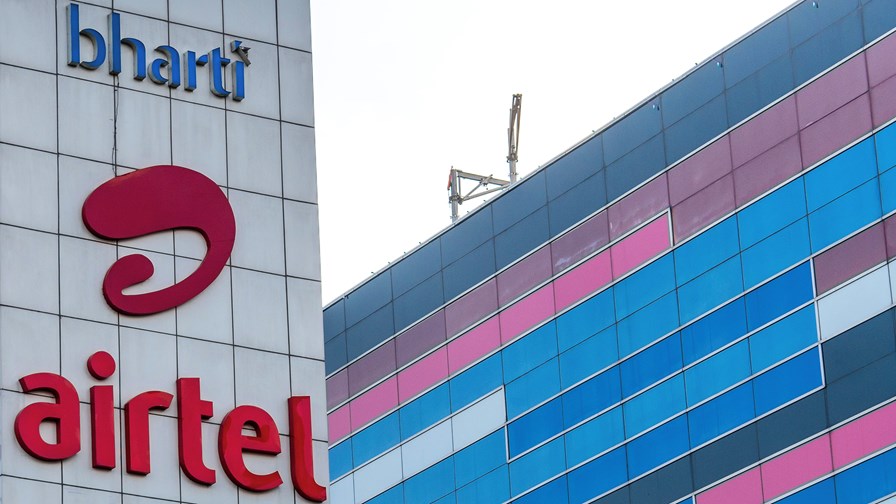
- Bharti Airtel teams up with Meta for infrastructure, digital services and Open RAN
- Joint investment will connect India with what is said to be the world’s longest subsea cable system
- The pair will also come up with “new-age” digital solutions based on CPaaS
Indian telco giant Bharti Airtel, the country’s second-largest mobile operator with 364.2 million connections, has advanced its digital transformation efforts by sealing a partnership with Meta (formerly Facebook) for joint investments into telecoms infrastructure and digital services, including Open RAN acceleration.
At the heart of the collaboration is a combined investment that will help extend the reach of subsea cable system 2Africa Pearls to India in an effort to provide the essential international connectivity needed to support the “high-speed data and digital services” that are in increasing demand in India, the telco noted in its statement.
The subsea network will be extended to Airtel’s landing station in Mumbai, while the two companies will also invest in “dedicated capacity to further strengthen [Airtel’s] submarine network portfolio”. For the move, the pair will partner with Middle East telco stc (Saudi Telecom).
The 2Africa Pearls cable system is considered to be the longest subsea cable system in the world and is expected to deliver global connectivity that will help to support the data demands of nearly three billion people across Africa, Europe and Asia.
The extension of the system is set to “significantly boost India’s cable capacity and empower global hyperscalers and businesses to build new integrated solutions and provide a high-quality seamless experience to customers,” stated Airtel.
In addition, the Indian operator and Meta will also invest in “new-age” digital solutions based on communications-platform-as-a-service (CPaaS) capabilities to address the expanding range of cloud service requirements from enterprises in India. Airtel will integrate Meta’s WhatsApp application within its CPaaS platform, dubbed Airtel IQ, so that businesses can use the messaging app’s “rich features and reach to provide an unparalleled omni-channel customer engagement to enterprises.”
Additionally, Meta and Airtel will keep collaborating as part of their membership in the Telecom Infra Project (TIP) Open RAN project group, with a view to enhancing ecosystem diversity, innovation and network cost efficiency. The telco explained it has signed an agreement to aid efforts to boost the operational efficiency of Open RAN systems, alongside facilitating energy management and automation in radio networks using advanced analytics, and artificial intelligence (AI) and machine learning (ML) models.
As part of the partnership, Airtel has also pledged to share with Meta its findings from its trials for 4G and 5G Open RAN solutions, as well as consequent commercial launches in the coming quarters.
“With our contributions to the 2Africa cable and Open RAN, we are investing in crucial and progressive connectivity infrastructure, which is needed to support the increasing demand for high-speed data in India,” remarked Vani Venkatesh, CEO of global business at Airtel.
According to Francisco Varela, VP of mobile partnerships for Meta, the joint move will enable the companies to “further advance the region’s connectivity infrastructure” which will provide “a better network experience for people and businesses across India.”
Efforts towards a digital India
Touting itself as “India’s premier digital communications solutions provider”, Airtel has been notably keen to become a leader in the digitalisation of its domestic market.
At the start of 2022, it scored a $1bn deal from internet giant Google, which will include the introduction of more affordable Android-run devices to the Indian market, the development of “India-specific network domain use cases for 5G and other standards”, and other commitments – see Google takes a stake in Bharti Airtel as part of $1 billion deal.
The second-largest telco in India has also been quite active with its 5G network rollout efforts after a long-anticipated spectrum allocation by domestic authorities was finally completed in August – see Record $19bn spectrum auction puts India on the 5G map. In November, it bragged about achieving a milestone of more than one million unique users on its 5G network – less than 30 days after its commercial launch. The news was followed by a series of premium 5G service launches at Indian airports, including in Pune and Bengaluru.
All these moves by Airtel are aligned with a wider ambition by the Indian government for the country to have a solid presence in the digitally enabled future, unlocked by the power of 5G – see India is bullish on 5G as the first networks are launched.
- Yanitsa Boyadzhieva, Deputy Editor, TelecomTV
Email Newsletters
Sign up to receive TelecomTV's top news and videos, plus exclusive subscriber-only content direct to your inbox.




